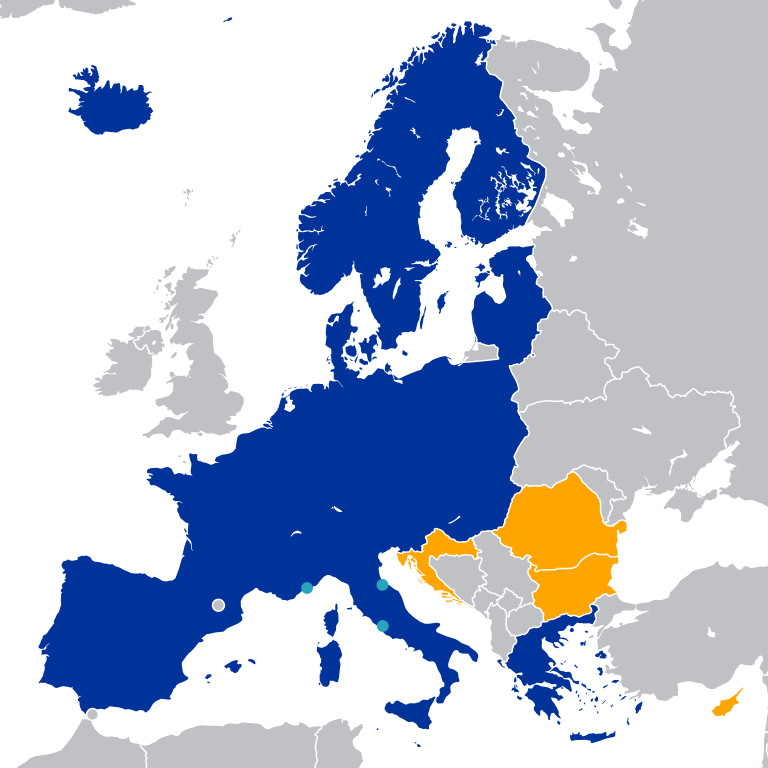The European Commission sent a formal notice to Estonia, calling the country to criminalise hate speech and hate crimes; the country also received a notice regarding its illegal restrictions on travellers crossing the external EU land border.
The commission decided on 30 October to send letters of formal notice to Estonia and Romania as their national laws do not fully and accurately transpose the EU rules on combating certain forms of expressions of racism and xenophobia by means of criminal law.
“Estonia has failed to transpose criminalisation of the specific forms of hate speech, namely the public condoning, denying or gross trivialisation of international crimes and the Holocaust, when such conduct aims at inciting violence or hatred. Additionally, Estonia has not correctly criminalised hate speech, by omitting the criminalisation of public incitement to violence or hatred when directed at groups and has not provided for adequate penalties,” the commission said in a statement.

“Finally, the Estonian criminal code does not ensure that the racist and xenophobic motivation of crimes are taken into account as aggravating circumstances so that such crimes are effectively and adequately prosecuted.”
According to the commission, Estonia and Romania have two months to reply to the points raised by the European Commission; otherwise, the commission may decide to send a reasoned opinion.
Criminalising any speech may violate Estonia’s constitution
The Framework Decision on combating racism and xenophobia by means of criminal law aims to ensure that serious manifestations of racism and xenophobia are punishable by effective, proportionate and dissuasive criminal penalties throughout the EU, the European Commission asserted.
However, criminalising hate speech in Estonia may violate its constitution. Article 45 of it says:
“Everyone has the right to freely disseminate ideas, opinions, beliefs and other information by word, print, picture or other means. This right may be circumscribed by law to protect public order, public morality, and the rights and freedoms, health, honour and good name of others. This right may also be circumscribed by law in respect of public servants employed by the national government and local authorities, or in order to protect a state secret, trade secret or information received in confidence which has become known to the public servant by reason of his or her office, and to protect the family and private life of others, as well as in the interests of the administration of justice. There is no censorship.”

While it’s arguable whether hate speech would fall under the category of protecting the honour and the good name of others, if there’s no censorship, then any speech – however hateful – could not be banned or criminalised. Legally, if the freedom of speech is guaranteed in the constitution, then the state cannot enact a new law, banning or criminalising any type of speech. The freedom of speech can only be limited in the terms of protecting the public from actual harm – for example, one cannot yell “fire” in a crowded theatre if there is no fire.
Estonia can’t impose additional conditions on crossing the external EU border
Another aspect Estonia was sent a formal notice about was its additional obligations on travellers crossing the external EU land border, which are in breach of the Schengen Borders Code.
“Currently, Estonia requires travellers who want to exit the EU to reserve a place in a border-crossing queue and to pay a fee for the reservation and for the use of the waiting area. The Schengen Borders Code sets out an exhaustive set of conditions for crossings and checks that need to take place when travellers are exiting the EU borders. The code does not allow member states to introduce any additional obligations, such as those at the border crossings in Estonia,” the European Commission asserted.

Estonia now has two months to notify the Commission of all measures taken to ensure the correct implementation of the relevant Schengen Borders Code provisions. Otherwise, the Commission may consider pursuing the infringement further.
The European Commission is the executive branch of the European Union, responsible for proposing legislation, implementing decisions, upholding the EU treaties and managing the day-to-day business of the EU. Estonia joined the European Union in 2004.
Cover: Mart Helme, the deputy leader of the far-right Estonian Conservative People’s Party and Estonia’s interior minister since April 2019, has for years incited hatred against immigrants, foreign students, journalists and sexual minorities. Photo by EKRE’s Facebook page.

